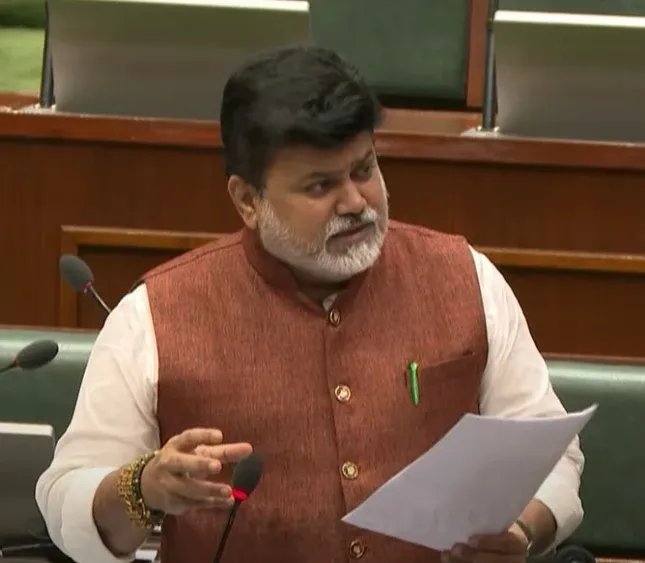Will the Maha Govt Enact a Law to Protect Transit Camp Residents?

Synopsis
Key Takeaways
- Maharashtra government plans to enact a law for transit camp residents.
- Timely rent payments will be mandated.
- Delays in redevelopment projects will be expedited.
- Accountability measures for builders will be introduced.
- Improved facilities for residents post-redevelopment.
Mumbai, July 17 (NationPress) Maharashtra Industry Minister Uday Samant announced during the state legislative council session on Thursday that the government plans to establish a law aimed at providing relief to individuals residing in transit camps throughout Mumbai.
The forthcoming legislation will ensure that families living in these camps receive timely rent payments and that the completion of stalled redevelopment projects is expedited.
Samant highlighted that numerous chawls and colonies in Mumbai are currently undergoing redevelopment, resulting in residents being relocated to temporary accommodations. Unfortunately, many of these individuals are not receiving the promised rent and are compelled to stay in transit camps for protracted periods due to delays in project execution.
This statement was made in response to a calling attention motion raised by member Shashikant Shinde and a supplementary question from member Praveen Darekar.
“There have been cases where developers commence redevelopment work but subsequently abandon it midway. In the meantime, the relocated residents are left without the expected rent,” Samant remarked.
“To tackle this issue, the government intends to introduce a law that will mandate rent payments and hold builders accountable. Currently, there is no regulation regarding the amount of rent to be paid to those residing in transit camps; this will also be addressed in the new legislation,” he added.
Samant further mentioned that the rules applied during the redevelopment of BDD Chawls in Mumbai will be extended to the residents of transit camps, ensuring they receive enhanced facilities upon completion of redevelopment.
He indicated that the Chief Minister would call a meeting to discuss the matter, and another meeting would be held in the Speaker’s chamber to seek solutions for the rehabilitation of residents from BIT Chawls.
In the meantime, Tribal Development Minister Ashok Uike reassured the House that no employee of the state’s tribal ashram schools would experience injustice under the ‘no work, no pay’ policy.
Responding to a calling attention motion from member Kiran Sarnaik, Uike explained that the rule was implemented following a court order and is uniformly applicable across all schools in the state.
He added, “If a school or class closes, there is a policy for staff adjustment. However, recruitment rules and service conditions differ for teachers and staff in Zilla Parishad schools and ashram schools run by the Tribal Development and Social Welfare departments. A special meeting will be organized soon to discuss the implementation of the 'no work, no pay' policy in tribal ashram schools.”




